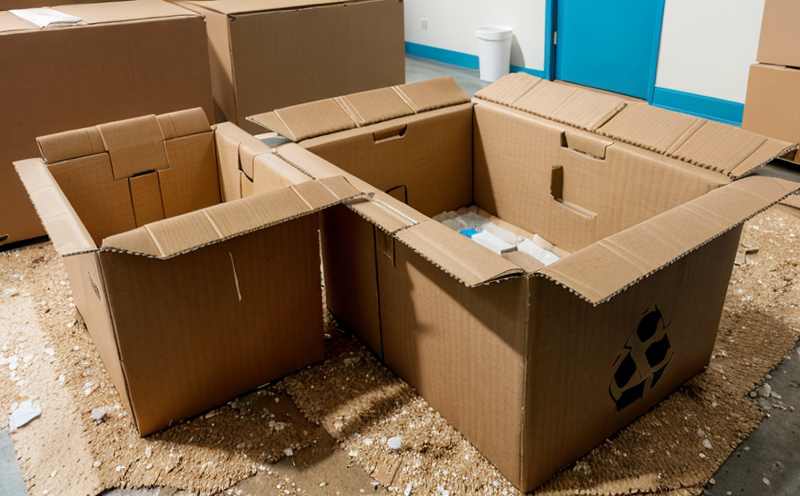EN 643 Office Paper Waste Classification
The European Standard EN 643 specifies the methods for determining the composition of waste paper and paperboard in order to classify it according to its suitability for recycling. This standard is crucial for quality managers, compliance officers, R&D engineers, and procurement teams dealing with office waste management and recycling processes.
Office paper waste classification under EN 643 ensures that paper products are correctly sorted and processed, leading to higher quality recycled materials. By classifying the waste paper according to its composition, this standard helps in achieving better recycling outcomes, which is essential for environmental sustainability and resource conservation.
The process involves several key steps: sampling, homogenization, drying, and analysis of chemical composition and physical properties. The classification aims at identifying specific types of office paper such as writing papers, printing papers, and other miscellaneous papers that are suitable for recycling into new products.
Sample preparation is critical in this process. Samples must be representative of the waste stream being analyzed. This involves collecting a sufficient quantity of samples from different sources within the specified time frame to ensure accuracy. Once collected, these samples undergo homogenization and drying processes before undergoing chemical analysis using standardized methods like gravimetric determination or near infrared spectroscopy (NIRS).
The results obtained from EN 643 provide valuable insights into the quality of recycled paper products that can be manufactured from this waste stream. Compliance with this standard ensures that only high-quality recyclable materials are used, thereby enhancing product performance and customer satisfaction.
Understanding these aspects allows stakeholders to make informed decisions about their recycling practices, ultimately contributing towards more effective waste management strategies.
- Sample Representation: Ensuring samples accurately reflect the composition of the entire waste stream is paramount for accurate classification.
- Chemical Analysis: Utilizing advanced analytical techniques ensures precise determination of chemical components in office paper waste.
- Recycling Quality: Properly classified waste leads to higher-quality recycled paper, which enhances overall product performance.
Scope and Methodology
The scope of EN 643 covers the determination of the composition of waste office papers for classification purposes. This includes assessing various physical properties such as color, brightness, and thickness, alongside chemical analyses to identify specific types like writing papers, printing papers, and other miscellaneous papers.
For effective implementation of this standard, it is essential to follow prescribed methods rigorously. Sample preparation plays a crucial role in ensuring accurate results. Representative samples should be collected from different sources within the specified period. These samples then undergo homogenization followed by drying before undergoing detailed analysis using appropriate techniques such as gravimetric determination or near-infrared spectroscopy (NIRS).
The methodology outlined in EN 643 provides clear guidelines for each step of the process, emphasizing precision and consistency to maintain high standards throughout. Compliance with these procedures guarantees reliable data that can be used effectively by various stakeholders involved in waste management.
By adhering strictly to the defined protocols, laboratories like Eurolab ensure accurate classification of office paper waste according to EN 643 requirements, supporting sustainable practices and contributing significantly to environmental protection efforts globally.
Eurolab Advantages
At Eurolab, we pride ourselves on delivering comprehensive testing solutions tailored specifically for the needs of our clients in waste management and recycling. Our expertise lies not only in adhering to international standards but also in providing personalized services that meet individual requirements.
We have state-of-the-art facilities equipped with advanced instrumentation capable of performing precise measurements required by EN 643. Our highly trained professionals ensure consistent accuracy across all tests conducted, giving you peace of mind knowing your results are reliable and trustworthy.
Our commitment to excellence extends beyond just meeting regulatory standards; we go above and beyond to provide additional value-added services such as recommendations for improving recycling processes based on our findings, training sessions for personnel involved in waste management operations, and ongoing support through regular updates on best practices and technological advancements related to paper recycling.
Choose Eurolab for your EN 643 office paper waste classification needs because we offer more than just compliance—we deliver actionable insights that drive sustainable change within your organization.
Why Choose This Test
- Compliance Assurance: Ensures strict adherence to European standards, facilitating smoother regulatory compliance processes.
- Informed Decision Making: Provides detailed insights into the quality of recycled paper products, enabling better decision-making regarding procurement and production.
- Sustainable Practice Support: Encourages environmentally responsible practices by promoting efficient use of resources derived from recycled materials.
Selecting EN 643 office paper waste classification offers numerous benefits. Firstly, it ensures compliance with stringent European regulations governing the recycling sector. Secondly, it supports informed decision-making processes among quality managers, R&D engineers, and other relevant personnel involved in managing waste streams effectively. Lastly, choosing this test promotes sustainable practices by encouraging efficient utilization of resources extracted from recycled paper products.
These advantages make EN 643 an indispensable tool for organizations committed to environmental stewardship and operational excellence within the waste management industry.





